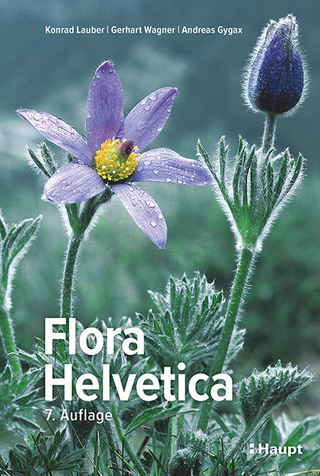
Recent Trends in Regeneration Research
Springer-Verlag New York Inc.
978-1-4684-9059-6 (ISBN)
An Overview of the Historical Origin of the Nerve Influence on Limb Regeneration.- Gene Expression.- Identification of a Homeobox Gene and a Keratin Pair Expressed in Amphibian Limb Regeneration.- An Examination of Heat-Shock and Trauma-Induced Proteins in the Regenerating Forelimb of the Newt, Notophthalmus viridescens.- c-Myc Proto-Oncogene Expression During Newt Limb Regeneration.- Expression of the WE3 Antigen in the Newt Wound Epithelium.- Commentary.- Cellular Aspects.- How Many Populations of Cells Occur in the Mesenchymal Blastema?.- Protein Kinase C Activity During Limb Regeneration of Amphibians.- Production of Growth Factors by the Blastema During Limb Regeneration of Urodeles (Amphibia).- Second Messengers in Newt Limb Regeneration: cAMP and cGMP Levels and Distribution.- Epimorphic Regeneration and the Immune System.- Immune System and Regeneration.- Dependence of Erythroblast Proliferation and Differentiation Manner in Mice Hemopoietic Tissue Regeneration on Lymphoid-Macrophagal System Cells.- Insulin Localization in the Pancreas and in Forelimb Regenerates of the Adult Newt Notophthalmus viridescens.- Lens and Limb Regeneration in Amphibia Under the Spaceflight Conditions.- In Vitro Effects of a Mitogenic Factor on Xenopus laevis Forelimb Regeneration.- Commentary.- Muscle.- Some Aspects of Regeneration in Skeletal and Cardiac Muscle.- Image Analysis of Proliferation and Fusion in Cultured Satellite Cells.- Regeneration of Skeletal Muscle Fibers by In Vitro Multiplied Autologous Satellite Cells.- In Vitro Potentialities of Myogenic Cells Isolated from Adult Urodele Muscles.- Commentary.- Mechanisms Controlling Directed Axon Regeneration in the Peripheral and Central Nervous Systems of Amphibians.- Response of Amputated Xenopus laevis Forelimbs to Augmentation of the Nerve Supply.- Neural Influence on the Extracellular Matrix During Blastema Formation.- Effects of Denervation on the Extracellular Collagen Matrix of Limb Regenerate of the Newt Pleurodeles waltlii.- A Quantitative Study of Innervation in Newt Multiple Limbs: Nerve Fiber Counts in Multiple Limbs Produced from Either Limb Buds or Mature Regenerating Limbs.- The Origins of Spinal Ganglia in the Amphibian Tail.- The Role of Nerves in Accessory Limb Development.- Rapid Neuronal and Glial Changes in the Phrenic Nucleus Following Spinal Cord Injury: A Possible Morphological Basis for the Unmasking of Functionally Ineffective Synapses.- Mechanisms of Transdifferentiation of Pigment Epithelial Cells Into Neural Retina: A Hypothesis.- Regeneration of the Central Nervous System of the Ascidian Ciona intestinalis.- Neuropeptides Control Regeneration in Planarians.- Commentary.- The Use of Retinoids to Explore the Cellular and Molecular Basis of Positional Memory in Regenerating Amphibian Limbs.- Biochemical Pathways Involved in the Respecification of Pattern by Retinoic Acid.- Survey of Research Work on the Regeneration of Triturus alpestris Forelimbs Treated with Vitamin A Palmitate.- Effects of Vitamin A on Limb Regeneration in the Larval Axolotl, Ambystoma mexicanum.- Vitamin A Effect on Limb Regeneration: Studies on the Tadpoles of Anuran Amphibians.- Commentary.- Pattern Formation.- Position-Dependent Growth Control and Pattern Formation in Limb Regeneration.- Supernumerary Limbs Developing After Small Angle Dislocations of the Limb Bud of the Newt.- Experimental Analysis of Intercalary Limb Regeneration Capacity in Urodeles.- Forelimb Regeneration in Reference with Hindlimb Regeneration in Stages of the Egyptian Toad, Bufo reqularis (Reuss).- Experimental Analysis of Mouse Limb Development in situ.- Regeneration and Morphogenesis.- Pattern Regeneration in an Insect Segment.- Regeneration and Morphogenesis in the Feather Star Arm.- Intercalary Regeneration and Supernumerary Limbs After Proximal or Distal Transposition of the Developing Limb Bud of the Anuran Bufo bufo in Contralateral Transplantations.- Digit Regeneration in Triturus cristatus After Pattern Transforming Interventions.- Ontogenesis and Regeneration of Embryonic Hindlimb Bud of Anuran Amphibian (Bufo) After Transplantation on the Tadpole Tail.- The Effects of 4-Nitroquinoline-N-Oxide (4NQO) at Different Stages of Triturus limb Regeneration.- Commentary.- General Discussion.- Author Index.
| Reihe/Serie | Nato Science Series: A ; 172 |
|---|---|
| Zusatzinfo | 114 Illustrations, black and white; 514 p. 114 illus. |
| Verlagsort | New York, NY |
| Sprache | englisch |
| Maße | 178 x 254 mm |
| Themenwelt | Naturwissenschaften ► Biologie ► Botanik |
| Naturwissenschaften ► Biologie ► Genetik / Molekularbiologie | |
| Naturwissenschaften ► Biologie ► Zoologie | |
| Naturwissenschaften ► Physik / Astronomie ► Angewandte Physik | |
| ISBN-10 | 1-4684-9059-1 / 1468490591 |
| ISBN-13 | 978-1-4684-9059-6 / 9781468490596 |
| Zustand | Neuware |
| Haben Sie eine Frage zum Produkt? |
aus dem Bereich


